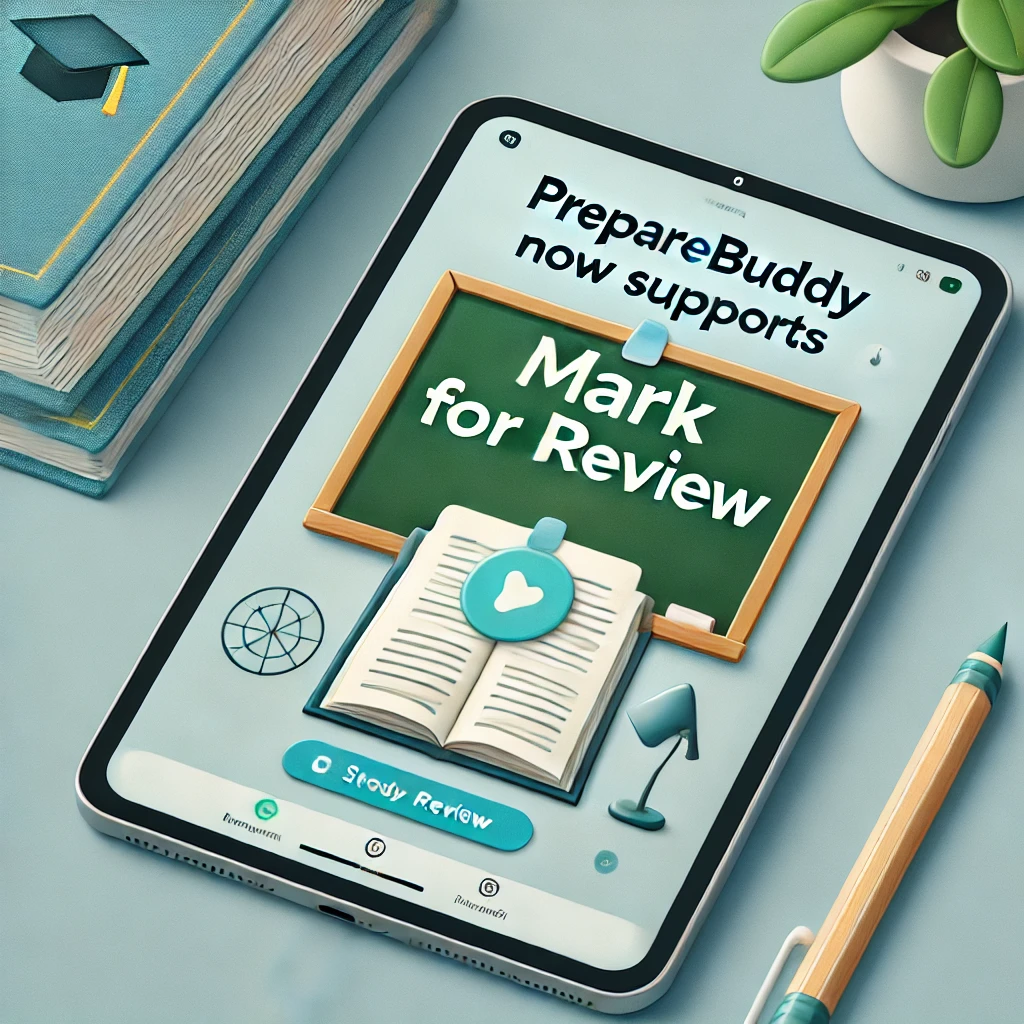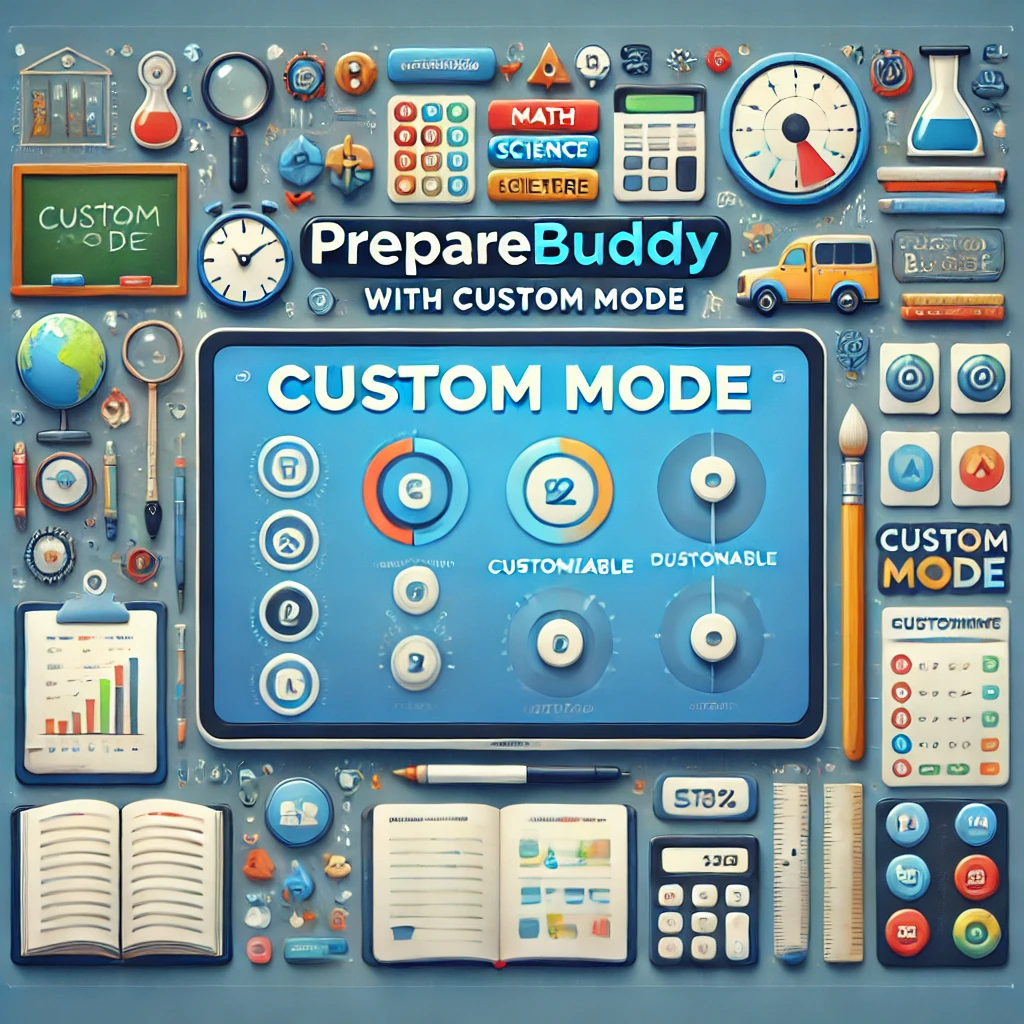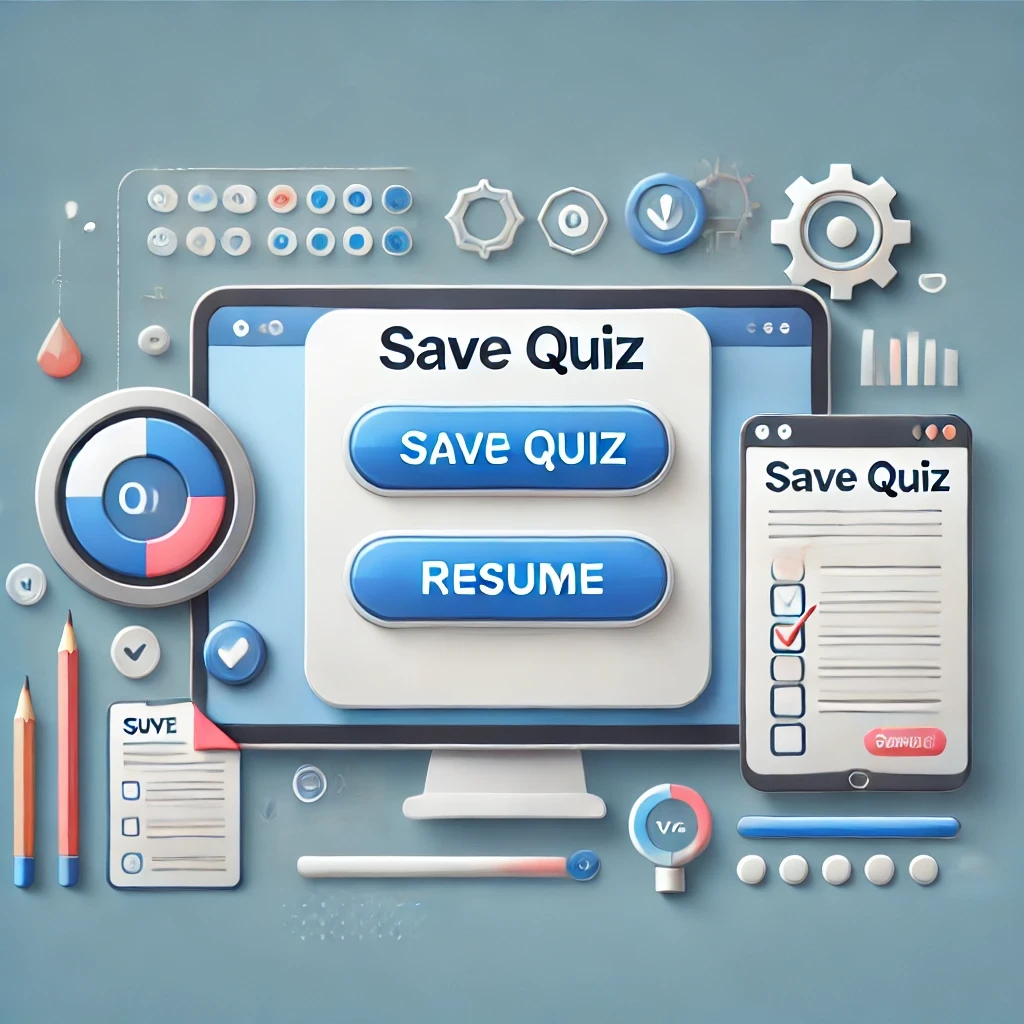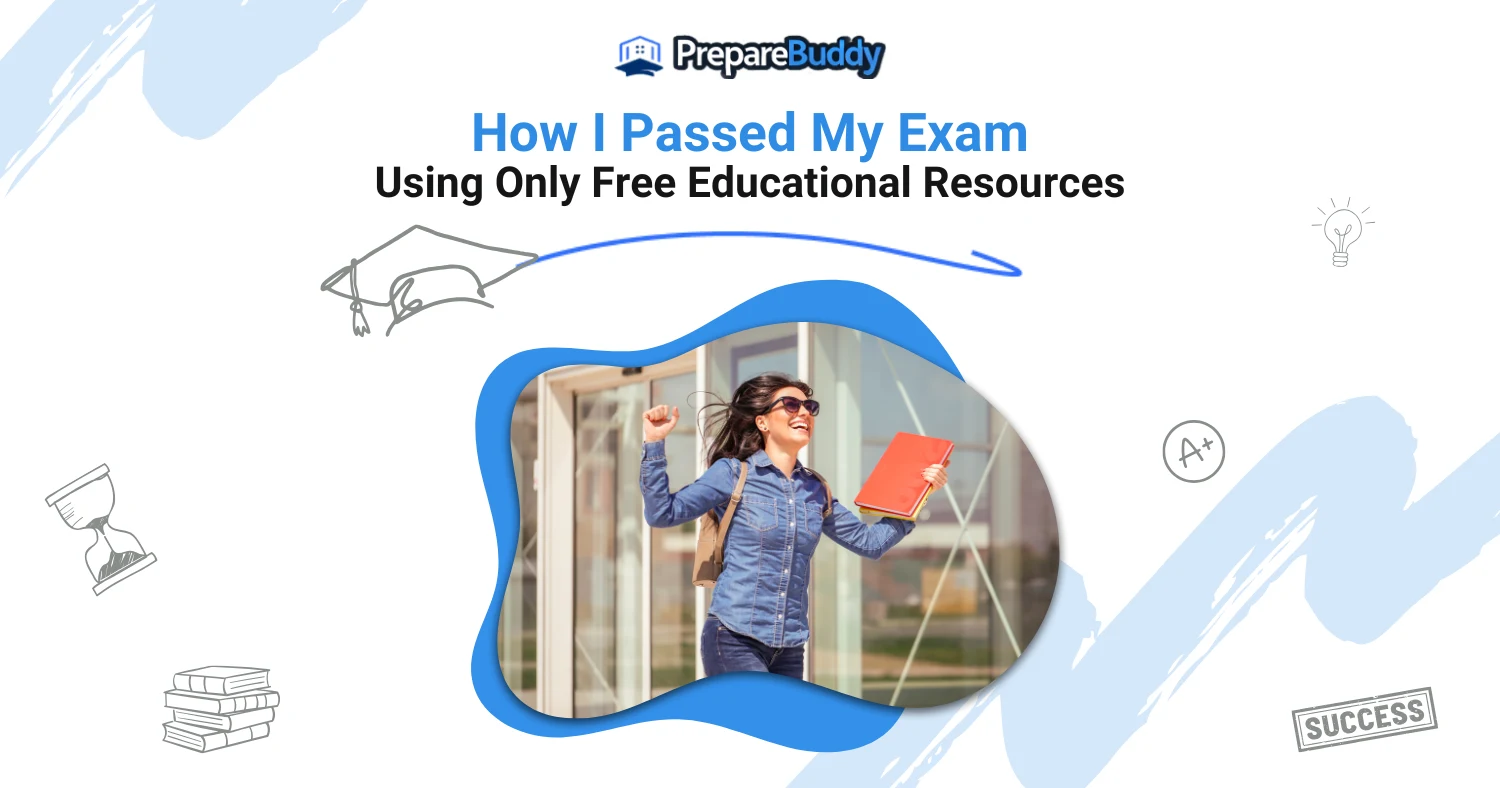
A couple years back, I was staring down the barrel of a major certification exam. It felt like every mock test I found online was either behind a paywall or, frankly, trash. Some had typos in every other question. Others were so outdated that I was studying material that was already removed from the syllabus. Sound familiar?
So I made a decision: I wasn’t going to spend a dime. I was going to pass this thing using only free educational resources.
Here’s how I did it—every step, every tool, every little trick I figured out along the way.
Step 1: Knowing What You’re Actually Studying For
The first thing I did was download the official exam syllabus. Most people skip this part. Big mistake. I used it like a checklist—every single concept listed there went into a Google Sheet. That was my master plan.
Then I joined Reddit forums and Discord study groups for that particular exam. Real people there share real struggles—what tripped them up, which topics they regret not studying, etc. These insights helped me prioritize what mattered.
I also went on YouTube and looked up "How I passed CCNA". It sounds basic, but some of those stories had absolute gems—like how one guy used Anki every day while commuting. I stole that tip instantly.
Step 2: Finding High-Quality Free Content (It Exists!)
There’s this myth that free = low quality. Not true—if you know where to look.
- YouTube Channels: My personal lifesaver was CrashCourse and Khan Academy. For technical topics, I leaned hard on freeCodeCamp and Tech with Tim.
- PrepareBuddy: Their custom exams tool? Underrated. I could build practice exams based on the exact topics I was struggling with. Total game changer.
- Open Courseware: MIT and Harvard have some crazy good lecture notes and problem sets. Again—free. And legit.
- Quizlet: Flashcards built by other students. I didn’t always trust them blindly, but they were perfect for quick revisions on the go.
- Academic Reddit Threads: Some threads have Google Drives full of notes, old question papers, and cheat sheets. Honestly, it's wild what you can find if you dig for 10 minutes.
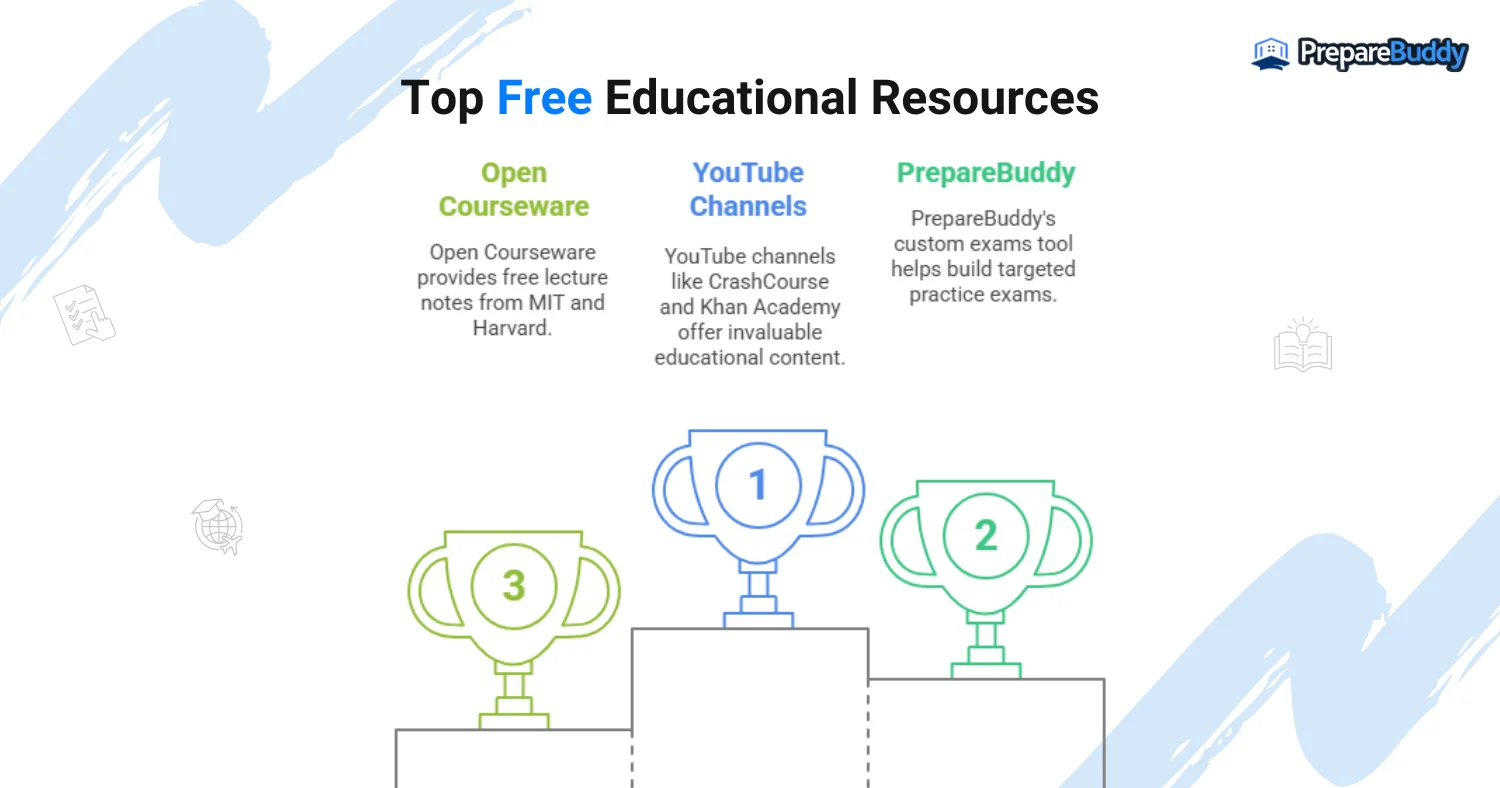
I even found Google Docs floating around online from students who’d taken the same exam. Gold mines of summarized notes. I remember one doc titled “EVERYTHING you need to pass CCNA exam,” and guess what? It delivered.
Step 3: Creating a Routine Without Burning Out
This one took trial and error. At first, I tried the whole "10 hours a day" thing. Didn’t last.
Eventually, I settled on two solid hours of active study every weekday:
- 45 minutes of learning new concepts (YouTube, slides, courseware)
- 45 minutes of solving practice questions
- 30 minutes reviewing mistakes or asking questions in Reddit/Discord
Saturday was mock test day. Sunday? Off. (My brain needed it.)
On days when motivation dipped, I used the Pomodoro method—25 minutes study, 5-minute break. It sounds silly, but setting a timer kept me honest.
Step 4: Building My Own Exams
Here’s where PrepareBuddy really stepped up. I started using their Custom Exam Tool to:
- Create focused tests from specific topics
- Use imported questions from Reddit or class forums
- Practice in the same format as my real exam
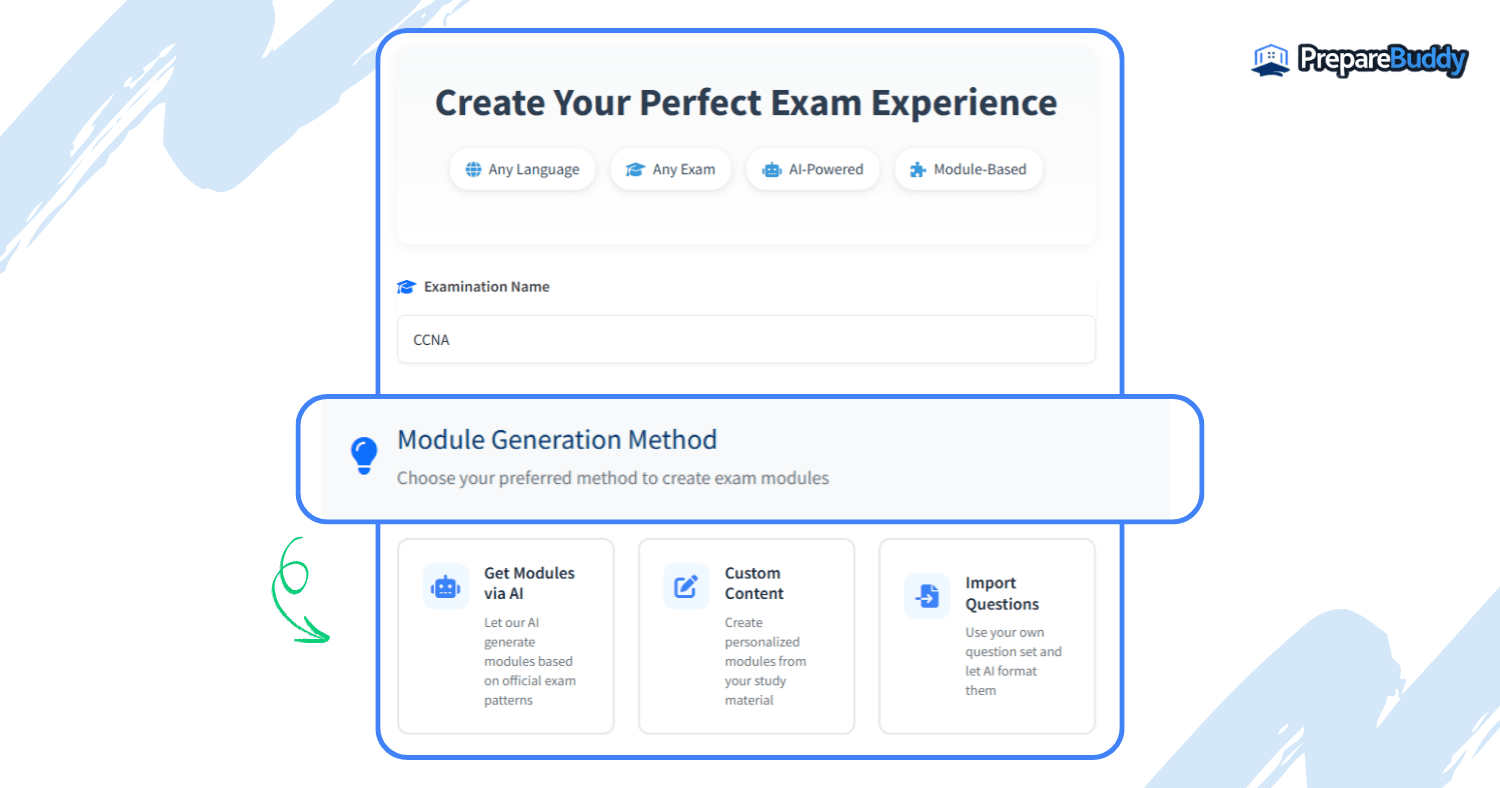
What shocked me was how accurate the AI-generated questions were. I didn’t expect much—but many mirrored what I saw on exam day. Plus, their AI Buddy gave me hints when I was stuck.
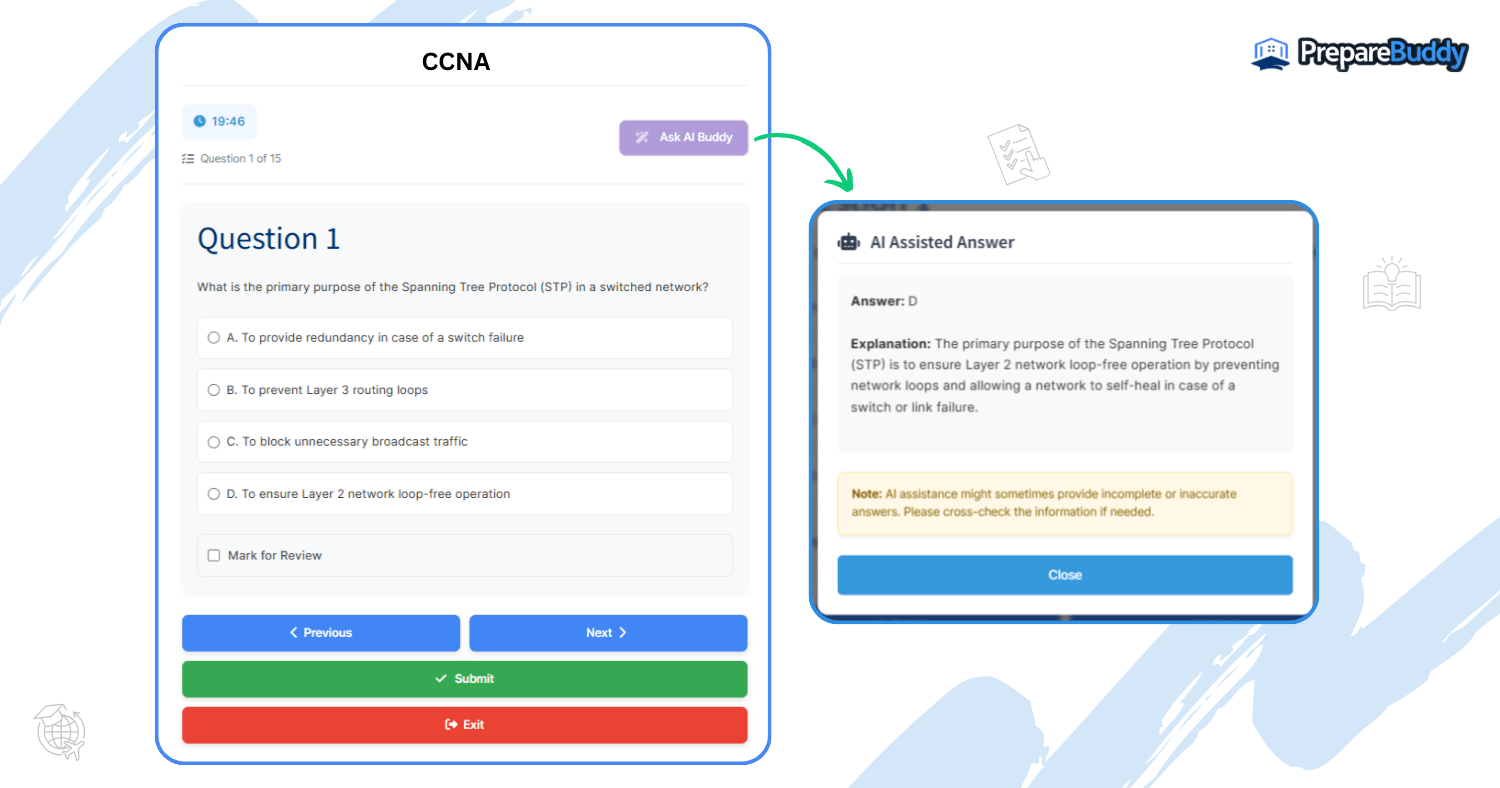
I even created shareable exam links for my study buddies. We’d compete for best scores every weekend.
The exam settings? Fully customizable. I could set difficulty levels, number of questions, even the time limit. I loved how I could simulate an actual test environment without the stress of messing things up.
Step 5: Tracking My Progress and Results
The instant results were a huge motivator. Each exam gave me a topic-by-topic breakdown, so I stopped wasting time reviewing stuff I already knew. I also downloaded the result PDFs and saved the certificates.
At the end of each week, I compared my performance. If a topic showed weak stats twice in a row, I’d revisit it with fresh resources or jump on a Reddit AMA to ask how others tackled it.
Sometimes, I even recorded voice notes summarizing what I learned that day. Listening to those during walks turned into my secret revision hack.
What Surprised Me the Most
Honestly? How much junk is out there—and how a few great free tools can completely change your prep game. I didn’t need a fancy course. I needed structure, smart tools, and honest feedback. And I found all that in the free stuff.
Also, the Reddit community? Lifesaver. No sugarcoating, just solid advice and shared experiences.
I started sharing my journey too—posted weekly updates and asked for feedback. Turns out, teaching others a concept is one of the best ways to master it.
Would I Do It Again?
In a heartbeat. Not just because it saved me money (though that was nice), but because it made me take ownership of my prep. I wasn’t just going through some video course someone else made. I was building my own path.
That’s what learning should feel like.
Also? It was kind of fun. Weirdly empowering to realize I didn’t need an expensive course to feel confident walking into that exam room.
(Seriously, Read the Whole Thing)
- Use the exam syllabus like your personal checklist
- YouTube, PrepareBuddy, Reddit, and MIT OpenCourseWare are your friends
- Custom exams help you stay laser-focused
- Don’t underestimate free tools—they work if you do
Ready to Build Your Own Exam?
Start with PrepareBuddy's Custom Exam Tool You can:
- Import your own questions
- Use AI to build modules
- Get instant results and downloadable certificates
You don’t need to spend big to learn big.
Try it out now and let me know what kind of exam you’re building. Drop a comment or share your story. We’re all in this together.
Other resources you’ll love:
- User Guide: Creating Custom Exams by Importing Questions
- User Guide: Creating AI-Generated Exams
- Help Center
Pass smarter. Learn better. Free.


